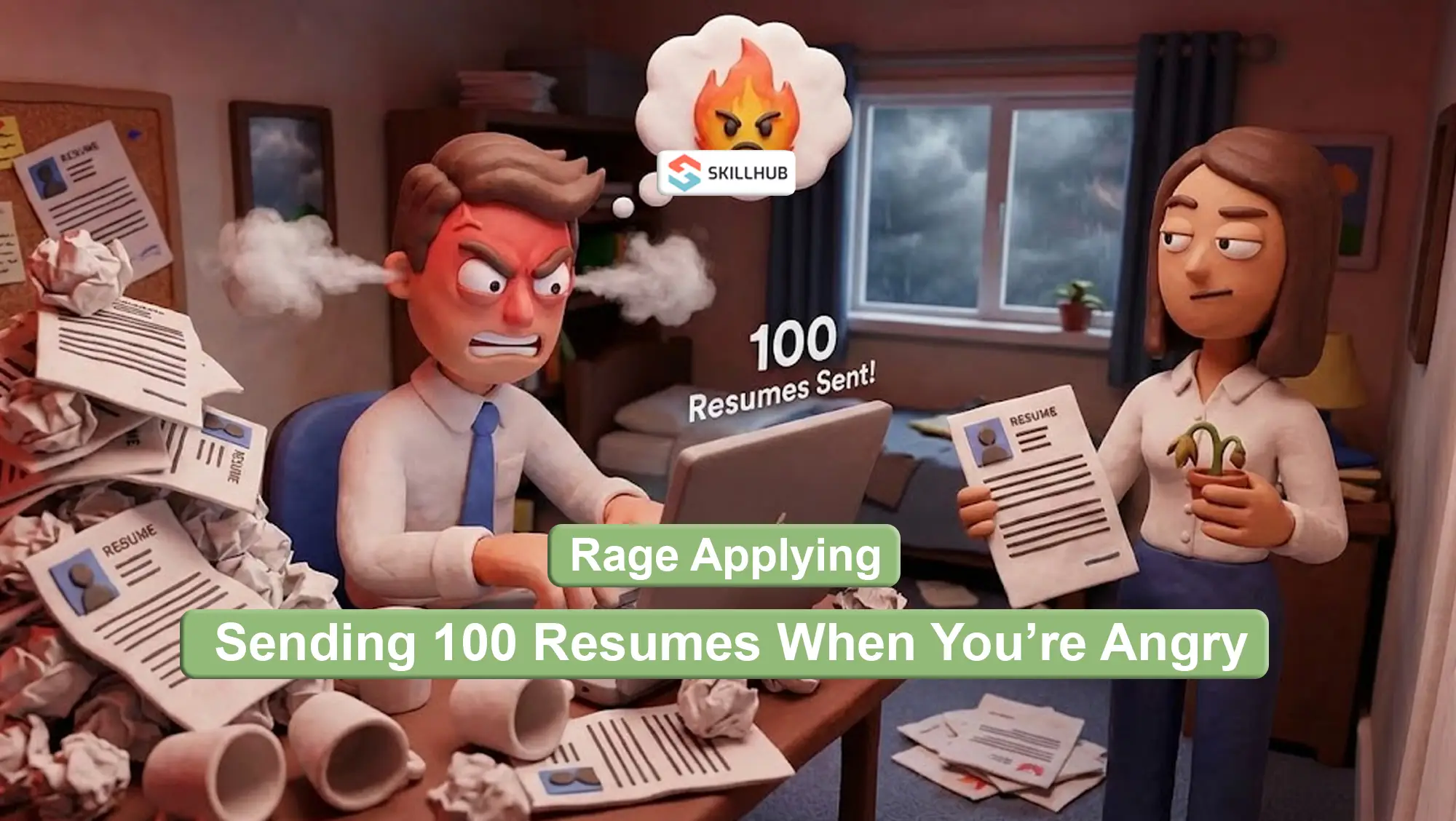How to Build Your Personal Brand Successfully

Whether working for an organization, freelancing, or running your own business, you can learn how to build your brand and achieve more. It will help you expand your network and find more opportunities or clients. When an individual has a personal brand, it is proof of their professional or social accomplishment. Depending on the nature of your activity and position on the career path, a personal brand must distinguish you from your competition in the field and appeal to your particular audience.
This article will discuss how to build your personal brand with actionable steps and explanations of what they mean. Here is the plan:
- Definition of your personal brand;
- What a personal brand consists of;
- How to communicate your personal brand;
- How to work with your target audience;
- How to present your personal brand;
- How to strategize your personal branding.
What Is A Personal Brand?
Usually, the first thing that comes to mind associated with brands is world-class fashion houses that cost a fortune for some. Well, this is the essence of having a brand: people want it and are ready to pay them money. The same principle applies to personal branding.
With an elaborate personal brand, your target audience has a distinct association with you, and it appears to them. All celebrities have their brand; business owners often merge with their brands' identity or the values it represents; public figures build their brand around what they do.
While extremely public personalities even have catchphrases to promote their brand, companies create visual systems of brand identity in the market and on supermarket shelves. We will focus on what to put behind your idea of your and how to build your own personal brand as a professional. This will help you find clients and establish the necessary network connections to move forward in your career path.
Why Your Brand Is Important
The word brand may not sound thoroughly familiar to people who do not work in the public realm, so it sometimes may be too much. However, your brand's content and purpose will depend on your overall goals. Naturally, depending on your current or aspired position, you will have different reasons to build your personal brand.
- Public figures, bloggers, or television celebrities need a personal brand to appeal to the audience, enhance their popularity and monetize it with advertisements. Essentially, the personal brand is their full-time job at the end of the day.
- In the case of a business owner, a personal brand is more of an instrument to create business connections, reach out to new clients, and promote their business in general.
- In a case of an employed professional or a freelancer, a personal brand is needed to show up in the professional community. It helps find more opportunities and establish your professional name.
A Guide on How To Create Your Personal Brand
Building a personal brand is comprehensive work. Clearly, you cannot achieve it in a day. It is a result of planning and strategizing, which is why we will go through each element that helps to build a personal brand. Take one step at a time and work on it for as long as it is comfortable. Prepare for delayed gratification in this work but start today to reach it faster. You can also make the process quicker and more efficient if you outsource parts of it to strategic branding services in the UAE, who can help with structured planning and brand positioning.
Define What You Can Do Best
Whichever the realm of an individual is—business, celebrity, or just a professional, their brand is always about what they can do best. So, the most important principle here is being you: how to build your personal brand and confidence. A personal brand is about articulating loudly who you are. If you are an outstanding graphic designer or lawyer, you will want to come across as one. Now, we will see some more practical examples of how to achieve it.
Your Strengths
Naturally, brands are built around strengths. If a company is good at creating furniture, this is what they will emphasize in their communication and appearance. Engaging in growth strategy consulting can help businesses identify their core strengths and effectively communicate them across all channels—ensuring consistent brand positioning and long-term market success. or brands that sell directly to consumers, DTC agencies can play a vital role in amplifying these strengths by crafting strategies that connect businesses more effectively with their target audiences. A doctor, a lawyer, or an independent movie director will emphasize their strengths and achievements as well.
Whether a trademark or an individual, a brand communicates its strengths in the first place. Since an individual does not need an enterprise-scale branding and visual system, one can incorporate what they are good at on their social media, their website, business card, and resume—essentially, the channels others can use to reach them professionally. Hence, an excellent way to start your personal brand strategy is to acknowledge who you are. Once you have it in the center, you can add other bricks to that carcass. You can also print marketing materials, such as brochures, flyers, or professionally designed business cards, to create a tangible impression and reinforce your brand offline.
Your Uniqueness
The next layer that goes over your strengths is the way you are unique in that. For example, there are a lot of software developers out there; to stand out and build an articulate personal brand, one must also pinpoint something special about there. If it is a furniture company, it may stress that it is a century-long business of their family who has been doing their craft for generations. In a case of a celebrity, it can be an element of their appearance or the genre of entertainment they represent. Professionals in tech can even highlight their experience with nearshore software development services as a unique angle that showcases cross-border collaboration and adaptability.
If you want to build a personal brand as a professional, you can use your area of interest and your inspiration as your unique characteristic. It relates to your job area and connects you with other people at the same time.
Your Values
The next layer to a comprehensive personal brand is the values it represents. Today, every public entity, be it a business or an individual is articulate about what it stands for. Big companies have separate budgets for public relations and supporting the cause their business cares about.
As an individual probably does not have access to public relations budgets, they must be genuine in their values. If you believe in something good and want to support it, you can use your skills to contribute to this cause. It can be a non-profit project of volunteering for an organization you trust. If you include photos to highlight your involvement, use tools to unpixelate images to ensure your visual content is of high quality and impactful. Make sure to include it in your portfolio and social media posting to build your personal brand with values that relate to people.
Be Specific
Until this block, we were discussing abstract categories like values, interests, and things that make your brand look special. To communicate all of these things specifically, numbers, figures, and document evidence work best. If you are an ambitious professional seeking opportunities or partnerships, the best platform to be specific and detailed about your brand is your portfolio and social media. With its massive reach and algorithm that favors engaging content, TikTok is the right platform. Those who want to grow on TikTok know that a strong online presence can open doors to valuable collaborations and career opportunities. To enhance these efforts, using your TikTok stream key is essential for streaming live broadcasts and fostering real-time connections with your audience.
A portfolio or a website will help you be specific about your skills, as it will show what you are good at. The range of themes and projects you have worked with or are looking for will stand for what makes you unique. At the same time, the projects you put your energy into can communicate your values, especially if you stress them on social media. Animated explainer videos can also be a powerful way to present your ideas clearly and visually, helping audiences understand what you stand for. Using AI video dubbing can help create content that is versatile for a wider global audience on social media. To scale content quickly while keeping it on-brand, many creators now use an AI video generator to produce localized versions and captions without extra editing time. Get some online presence to build your personal brand.
Give a Profit to Your Audience
People invest their time or money in a brand to get their gain. To be successful, a brand must communicate its audience’s gains properly. Again, in personal branding, it works just like it does with globally known names. Audiences go to a certain firm to get a needed service; millions of fans listen to a pop star because their songs make them relate to them; businesses hire professionals that do their work well. Using digital tools for startups can refine how brands highlight these gains, making their message clearer and more engaging to their audience.
While working on your personal brand, take into account the perspective of your audience. It will help you communicate your strengths, show your uniqueness, and stand for your values the way your audience sees how it will benefit them. Show the audience their gains, and your brand will appeal to them.
Define Your Audience
Naturally, to communicate to your audience effectively, you need to understand it. Your expertise is probably specific enough not to be interesting to every single person in the world. So, it is essential to focus on those who can be interested in what you have to offer. When building your personal brand, it's essential to understand your audience’s needs and expectations. Similarly, businesses that undergo a business restructure must reassess their target market, ensuring that their services and messaging resonate with new or evolved customer segments. Just as individuals tailor their brand to fit their audience, businesses must adjust their positioning to regain market relevance after restructuring.
If you are learning how to build your personal brand online, you have a chance to study your audience all the way through. Figure out the way they can learn about you and reach you. Define where they are looking for services or expertise like yours, and study their interests and values. The more you know about your current and potential audience, the more instruments you have to strike the right chords in their hearts. To gather this insight, many professionals rely on web scraping tools; when comparing Playwright vs Selenium, each offers distinct advantages in extracting audience behavior data from online platforms. Also, for backend tasks like crawling or data collection, it’s better to rotate proxies in Playwright to avoid IP throttling and maintain smooth automation.
Optimize Your Personal Website and Social Profiles
Moving from the more ideological content of your brand, let’s discuss the technicalities that make it up. One of these is the optimization of your presence online. Based on the instruments you use to show up here, make sure you are reachable and easy to find. Let’s see how a website can help and how to use social media to build your personal brand. Beyond having a strong online presence, using practical tools can enhance how your audience interacts with your brand. Different features including back in stock alerts keep visitors engaged, ensuring they return to your website and remain connected with your offerings.
If you are about to provide professional services, your brand will benefit greatly from a personal website. You could even create one quickly using an AI website builder specially the ones tested by Cybernews, allowing you to showcase your experience, expertise, and style while giving visitors an easy way to reach out. Everyone can see your experience, expertise, and style, as well as use it as a business card and reach out to you right away. To make a lasting impression offline too, professionals often use metal business cards, a sleek, durable way to reflect their personal brand’s quality and creativity. Before building a professional online presence, it’s also wise to perform a business entity check to ensure your brand is legally compliant and properly registered. This adds credibility and protects your reputation as you grow. To make sure your website is visible online and reachable via search engines like Google, you need to optimize it with keywords that relate to your expertise. It will help users find your page when they are looking for something you are good at. The part of audience research can also help figure out the keywords your audience may use to find you. Also, selecting the right content management system is important for maintaining and optimizing your website. While Contentful is a popular choice, exploring alternatives to Contentful CMS can help you find a platform that better suits your specific needs, whether for flexibility, ease of use, or SEO benefits. If your personal brand includes ecommerce selling digital products, courses, or merchandise consider collaborating with a specialist Shopify Development Agency to translate your positioning into a high converting storefront, manage essential integrations, and free you to focus on content and client work.
Similarly, professionals in manufacturing or robotics can connect with robotics cable assembly manufacturers like Cloom Tech, integrating expertise and supply chain insights into their personal brand narrative.
Social media platforms are another powerful tool for promoting your brand. Here is how to optimize your profile.
- Add a professionally-looking profile picture. If you have a logo for your brand, you can add it to the picture as well — or create a logo online easily using an AI logo generator.
- Clarify what you do in the profile description. Use keywords or even hashtags as well.
- Give a link to your portfolio or website to show the visitors of your page your expertise right away.
- Post content that relates to your expertise or your values to solidify your personal brand essence.
Create Your Content Strategy
As we just mentioned more specifically, your appearance online must communicate your brand essence. You have complete control over it as you decide what you post online, and leveraging Ecommerce CMS Platforms can help you design and manage that presence more effectively. For this work to be cohesive and comprehensive, build a content strategy. Using DAM solutions can help you organize and access all your content efficiently, making strategy implementation smoother. Here is how to build your personal brand with social media and the steps you should take.
Step 1. Define your tone of voice. Based on your area of expertise, values, and uniqueness, along with the interest of your audience, you can define your tone of voice online. You can even use some branding guides and pick an archetype for your brand if it makes communication easier.
Step 2. Define the topics of interest on your social media. If you are building a personal brand around your expertise, the topics you post about must relate to your job. Define the range of topics you are good at and double-check if they will be interesting to your audience.
Your content can include professional reflections on the events around you or expert tips everyone can use in life. If you want to expand your audience, you can give them value with your expertise.
Step 3. Be consistent. If you start posting on social media from a perspective of a professional, you cannot disappear for a long time. Consistency may seem complex, and a well-developed content plan can help. Define the topics that may be useful or interesting for your audience and plan some posts ahead. LLM agents can assist in drafting content or generating ideas to keep your posts timely and aligned with trends. However, if you see relevant news, you can react to them from a professional perspective as well.
Key Takeaways
As you can see, creating a personal brand is a comprehensive task that takes time and requires a complex approach. Having an established personal brand benefits any entity, whether you run a business, aim at popularity, or have a freelance job you want to invest in.
Building a personal brand from scratch starts with the research phase and defending who you want to be like writing and translation, content writing, copywriting etc.. One needs to figure out their positioning, things they are good at, and the things that can be useful for their target audience. If you're unsure where to start, you can reach out to an ecommerce marketing expert agency for guidance and support. Once the picture of positioning and the audience is clear, you can start creating your content strategy. Take each step one at the time and move towards building a solid personal brand with confidence.
%20(1).png)



%20(1).webp)